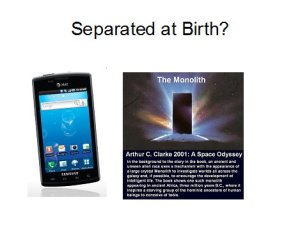As background for our ongoing oral history on technology in literature and popular culture, I just finished reading David Hughes’ The Shock of the New . Hughes describes dandyism and art in the 19th century, along with the eponymous figure of pop art and Pittsburgh native Andy Warhol.
Writing in the Paris Review on February 20th [1], Tara Isabella Burton compares the cult of 19th-century dandyism with our 21st-century predilection for taking cell phone portraits of ourselves (aka ‘selfies’). She quotes Charles Baudelaire, the 19th-century French poet, who describes the dandy as:
…transcending his humanity—by choosing and creating his own identity, he remains splendidly aloof, unaffected by others or by the world at large.

Oscar Wilde, Dandy Extraordinaire (Wikipedia Commons)
She also quotes 19th-century French writer Jean Richepin:
“…the true dandy evokes surprise, emotion, and passion in others, but remains entirely insensible himself, producing an effect to which he alone remains immune.” And is:
“… brilliant and bored; he lives in terror of being pigeonholed by others. “Having dabbled in nearly everything—arts, letters, pleasures—he had forged for himself an ideal, that consisted in being unpredictable in everything.” … he applies false hair and makeup to alter his appearance and confound his peers.
Hughes writes about Andy Warhol, a 20th-century dandy by any other name, whose:
… ‘autistic stare was the same for heroes and heroines as for death and disaster… the shallow painter who understood more about the mechanisms of celebrity than any of his colleagues, whose entire sense of reality was shaped… by the television tube.”

Andy Warhol
Poul Webb, Art & Artists
The period of 19th-century dandyism that Burton and Hughes cite between roughly the 1840s and 1900 coincides with the appearance of photography, which allowed for endlessly reproducible images.
Anyone who has seen portraits of Warhol, who famously ‘liked to watch’, instantly recognizes the carefully constructed image: fright wig, the glasses, the stare. And of course Warhol utilized the replicated, mass-produced industrialized image in reframing everyday objects and celebrities as objects worthy of attention and art all the way to the bank. As Hughes writes:
“Warhol did more than any other painter alive to turn the art world into the art business. By turning himself into pure product, he dissolved the traditional ambitions and tensions of the avante garde.
Burton quotes Jennifer O’Connel[2] in the Irish Times: “We are living in an age of narcissism, an age in which only our best, most attractive, most carefully constructed selves are presented to the world.” Paradoxically, O’Connel also writes about the increasing prevalence of loneliness in our lives.[3] In the 1970s, when I was in college, Christopher Lasch warned (or at least pointed out the consequence) of this direction in our culture in The Culture of Narcissism.
In addition to mass media of television, film, advertising and the web, consumer culture gives us cell phones, helmet cams, Google glasses and personal monitoring devices. These technologies purportedly give us the freedom and power to define ourselves, endlessly watching, refining, redefining and creating our image. But where is the line between the freedom to create our own identity and the demand that we do this incessantly (and exclusively) for the consumption of others ?
In Ken Gergen’s ‘The Self in the Age of Information’ the cult of narcissism calls into question the whole idea of self, in the sense of immutable character. Gergen proposes that modern technology (including now Facebook, Twitter, and evolving forms of social networking) make the plastic personality, the chameleon self, a primary asset in creating and presenting a public persona. Image is all. Warhol also creepily said ‘I want to be a machine’. But if we are all busily creating digital versions of ourselves for public consumption, whatever our private struggles and personal joys (if these count for anything), who is the audience we are doing this for? And what happens when they move on to the next trend, or if we need a human connection beyond people just watching? – CDL



